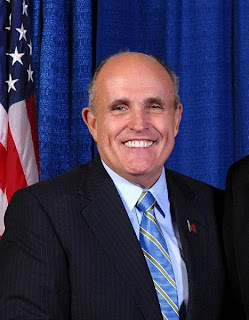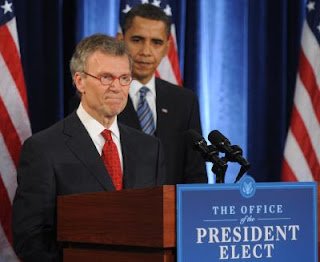
In my opinion decentralization was a massive factor in the election of 2008 and
blew the traditional "election map" out of the window in many states, and showed us all that, despite many people losing faith in the system, there is a great deal of hunger out there in the country for "something different".
Take the Republican party, for example.
Their traditional mantra was : "Less Taxes, Less Government, Less spending." Despite this, as we all know, the Bush administration has ballooned the Federal budget, deficit, and the national debt to levels not seen since WWII. I am not passing political judgment either way on this, good or bad, but the Republicans lost their identity with the voters, in my eyes. They decided to base their campaign around "the politics of fear" and portrayed the democrats as too weak to combat the non stop terrorist threat that we face from Islamic extremists.
While that probably took Bush, and the Republicans over the line in 2004, the voters were less convinced this time around. And all of a sudden, you get a candidate like Ron Paul, who - when the election started - was a virtual unknown outside Texas, but by the end of the political cycle he became infamous for winning every "Fox News post debate poll" and arguing with Sean Hannity about public policy.
The notion of a 70 year old Congressman from Texas with some extreme, radical views (i.e. banishing Social Security, closing all foreign US military bases) could harness incredible awareness in the political spectrum says a great deal about the decentralization of the Republican party. There is an "identity crisis" within the party at the moment, and the fact that Ron Paul did as well as he did speaks volumes for the transformation the GOP is going through at this present moment in time.
As for commenting on political heterogeneity, as the Professor indicated in this week's video, heterogeneity and decentralization are correlated. Moving away from the lesser known Ron Paul, to the super-star status of Barack Obama tells its own story. It is obvious to talk about Obama being the first African American to be elected into the White House, and that is a marvelous achievement. But what interests me, as someone who has lived in many different countries, is his unique International background.
Below is a fine article about why his international background "is an asset, not a flaw." :
http://yaleglobal.yale.edu/display.article?id=8713This receives less attention in the media,
but it nonetheless speaks volumes about the heterogeneity of the USA today and the way globalization has shaped the world we live in. Obama's roots are in Hawaii, Indonesia, Kenya, and England (his step-mother and sister live in Bracknell, England).
That's 4 different countries, on 4 different continents! Not to mention his sojourn at Harvard, and "political upbringing" in Chicago, Obama is an extremley diversified candidate for many reasons. To me, that is absolutely incredible that this country has a President of such a global, diverse, international background.
The fact that someone like Barack Obama can become President indicates a shift in heterogeneity within the US, moving away from the small town, rural mentality, and thinking on a broader, more global scale about how to change the country in order to face up to the challenges in the future.
In conclusion, even though the individual messages of Obama and Paul differed vastly, their common message of a need for "change" within the political system catapulted both straight to the forefront of American politics.







